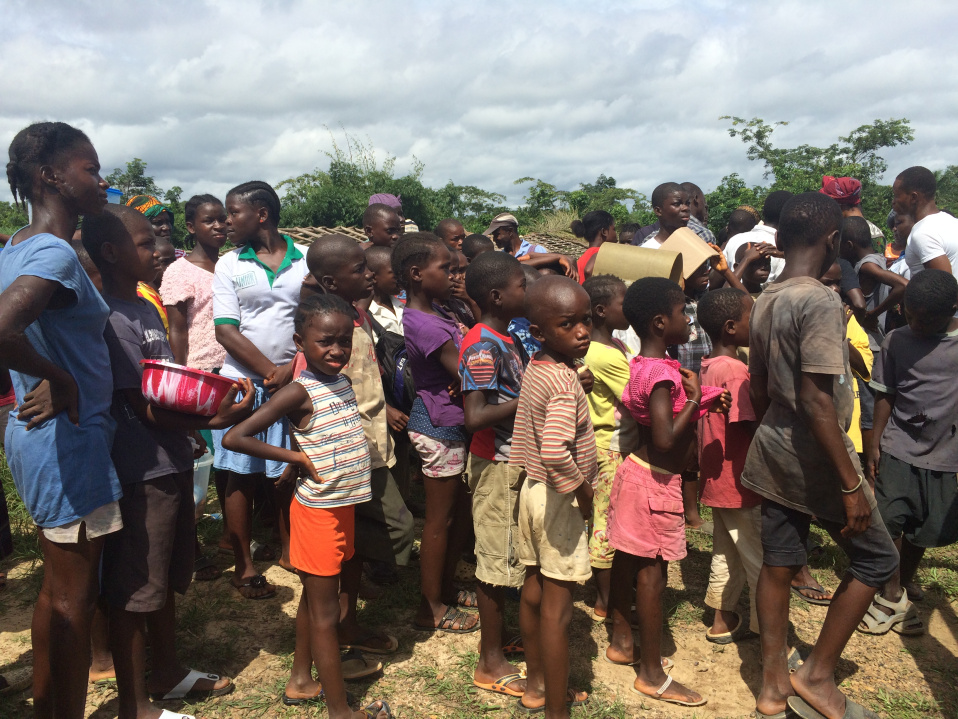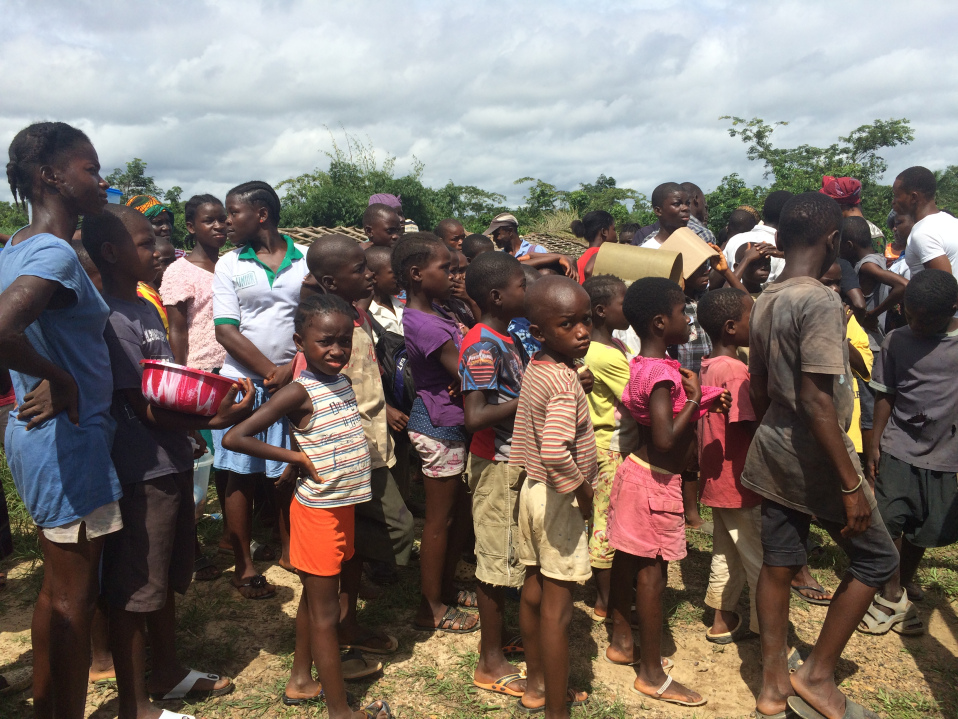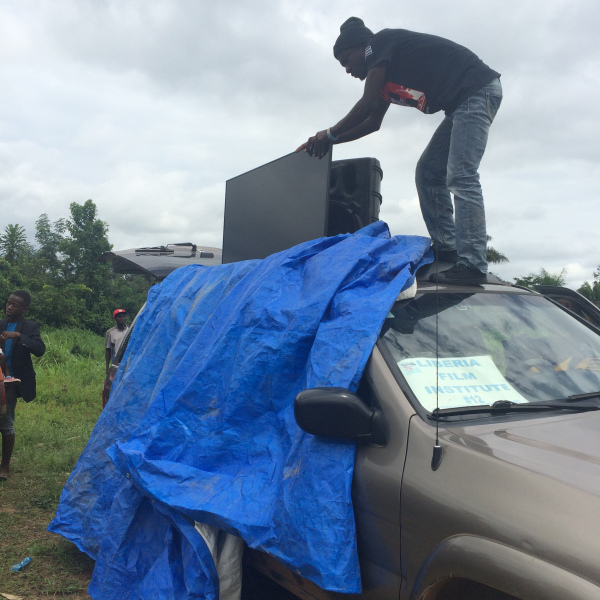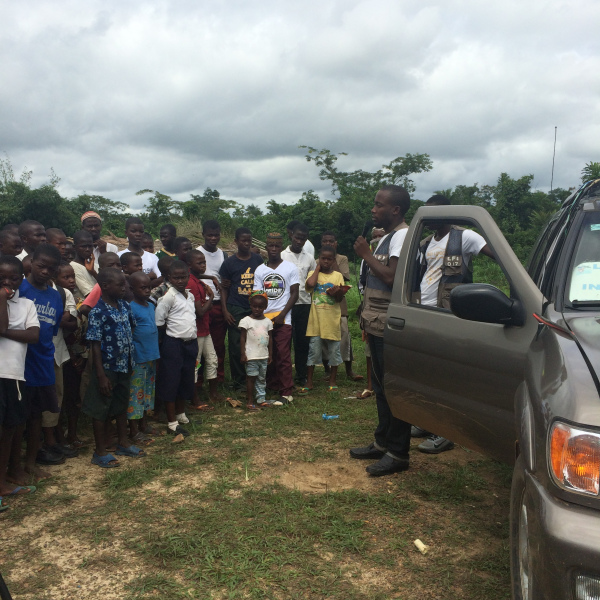NEWS
August 3, 2015

IN BRIEF
By: Meghan Schneider, Accountability Lab Summer Design Resident Earlier this year students at the Liberia Film Institute (LFI) created a series of documentaries and dramas about the Ebola epidemic that ravaged Liberia. The films covered a range of topics including the stigma survivors face, sexual transmission of the disease, and accusations that emergency workers still have not received proper compensation. These films were first shown in June, when the Accountability Lab and LFI co-sponsored a film festival on the University of Liberia’s Capitol Hill campus in Monrovia. After the showing in Monrovia, LFI began traveling to all of Liberia’s counties [...]
SHARE
 By: Meghan Schneider, Accountability Lab Summer Design Resident
By: Meghan Schneider, Accountability Lab Summer Design Resident
Earlier this year students at the Liberia Film Institute (LFI) created a series of documentaries and dramas about the Ebola epidemic that ravaged Liberia. The films covered a range of topics including the stigma survivors face, sexual transmission of the disease, and accusations that emergency workers still have not received proper compensation. These films were first shown in June, when the Accountability Lab and LFI co-sponsored a film festival on the University of Liberia’s Capitol Hill campus in Monrovia. After the showing in Monrovia, LFI began traveling to all of Liberia’s counties to conduct mobile screenings. Because many people don’t have televisions in their homes or reliable electricity, mobile screenings are a great format for ensuring that many Liberians are able to see these important films. The kickoff of the mobile screening tour was particularly timely, as it coincided with a second wave of Ebola cases in Liberia. LFI hopes that the films will serve as a reminder that Ebola is still very real, while teaching people around the country how to prevent the disease.

On July 3rd the Lab joined LFI at one of the mobile screenings in Bomi County. The first stop was at Klay Market. LFI brought a large flat-screen TV and big speakers, which they set up on top of their vehicle in the middle of the marketplace. The TV and speakers were powered by the car, meaning that they could set up in even the most remote parts of the country. While some students were busy setting up, others went around the market, spreading the word about the upcoming screening. By the time the screening started, over fifty people were gathered around to watch.
Before the films were shown, Divine Anderson Key, the director of the LFI, gave a short speech about the
school. He was followed by Prince S. Jalibah, a current LFI student, who talked about the inspiration for his film “Self-Protection”. Prince said he thought the mobile film screenings were important because they helped educate people about various aspects of the Ebola outbreak, including ongoing stigma. He thinks film is an important way to present health messages because people don’t need to know how to read or understand complicated messages – they can simply watch what happens and relate that information to their own lives. Many of the films, including Prince’s, contain vivid visual messages of how to prevent the spread of Ebola. Following their remarks, they presented two dramas and one documentary. As the films played, more people continued lining up to watch, with nearly one hundred viewers enjoying the screening.
 After the screening, LFI students distributed DVDs containing all of the Ebola films, enabling people to share the films with their communities for years to come. Many people said they would share the films with people in their villages that weren’t at the mobile screening.
After the screening, LFI students distributed DVDs containing all of the Ebola films, enabling people to share the films with their communities for years to come. Many people said they would share the films with people in their villages that weren’t at the mobile screening.
LFI’s mobile screenings highlight the importance of adapting outreach strategies to fit local conditions. Community-based programming can have wide-reaching and long-lasting impacts on developing countries like Liberia. The screenings are educational and fun, and they can reach a broader portion of the population than traditional outreach events.
